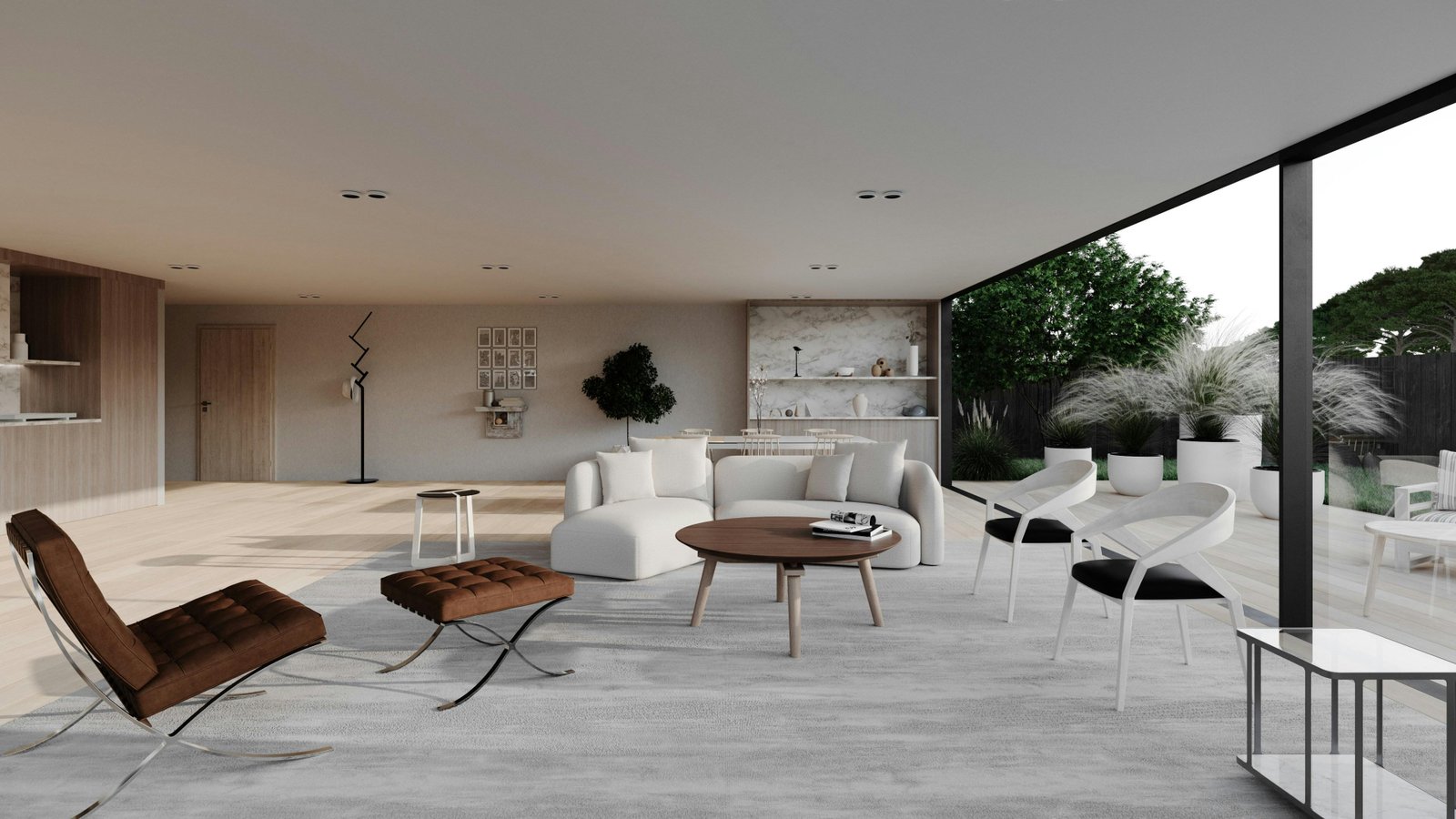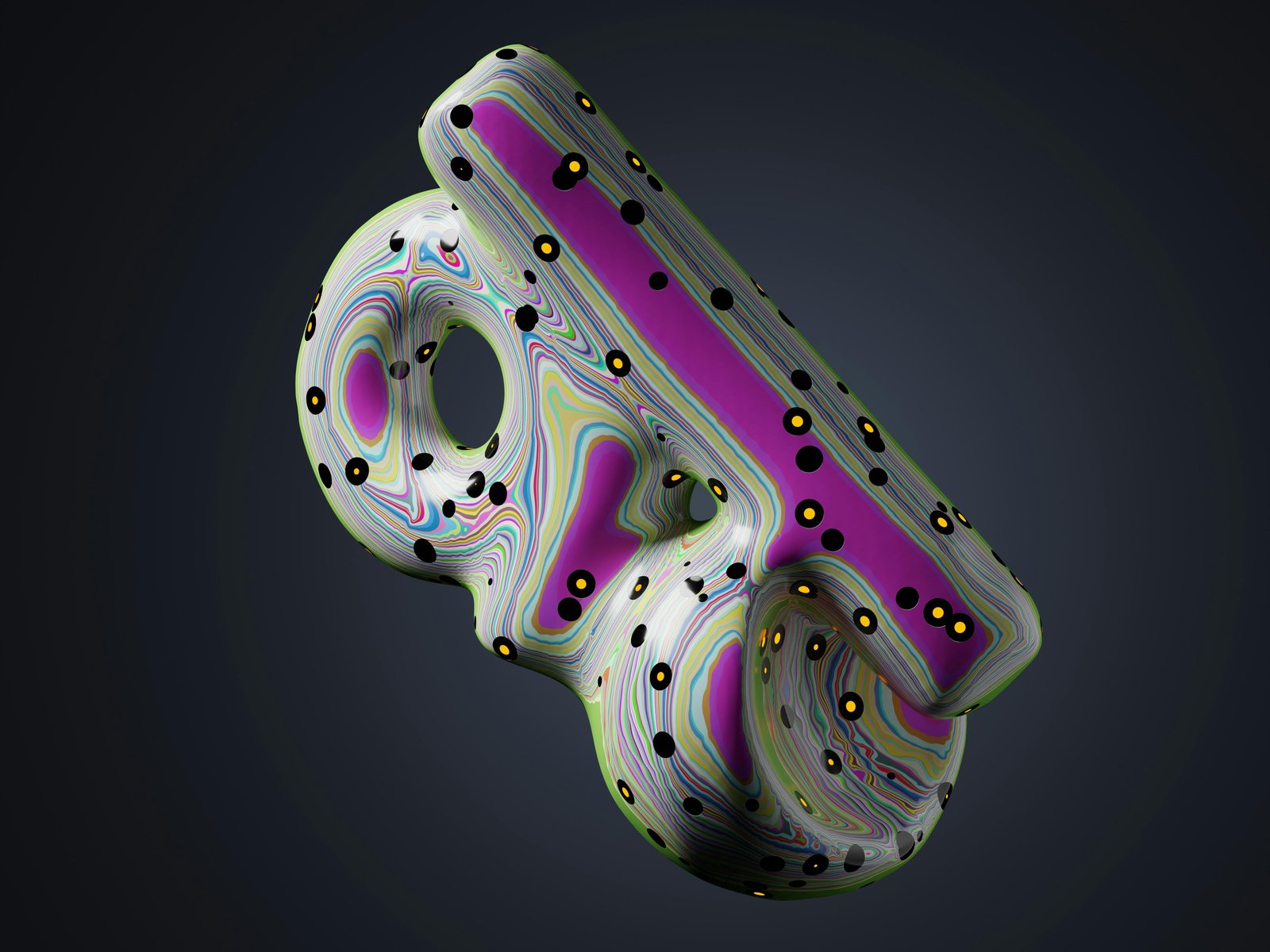Think about standing in a room that doesn’t exist—at the least, not but. You see daylight pouring by way of home windows, shadows shifting throughout the ground, and each element of the area feels actual. That is the magic of architectural visualization and 3D rendering. Extra than simply instruments, they’re bridges between concepts and actuality. These applied sciences permit architects, designers, and shoppers to step inside blueprints and discover potentialities earlier than the primary brick is laid. On this article, we’ll uncover how 3D rendering is remodeling the way in which we take into consideration buildings, making creativeness tangible and bringing future areas to life with readability and precision.
Desk of Contents
- Unlocking the Power of Architectural Visualization for Modern Design
- Essential Tools and Software for Stunning 3D Rendering
- Best Practices to Elevate the Realism of Your Visuals
- Future Trends Shaping the World of Architectural Renders
- Q&A
- Concluding Remarks

Unlocking the Energy of Architectural Visualization for Fashionable Design
Embracing visible instruments in design opens doorways to extra knowledgeable selections by remodeling summary ideas into detailed imagery. Architectural visualization not solely narrows the hole between creativeness and actuality but in addition empowers each creators and shoppers to discover concepts in real-time. Whether or not you might be creating a residential challenge or a business area, these digital fashions permit easy experimentation with supplies, layouts, and lighting. This readability results in smoother communication, minimizing pricey revisions and misunderstandings.
As we speak’s highly effective rendering applied sciences carry designs to life with photorealistic element and exact accuracy. Challenge stakeholders profit from having the ability to:
- Visualize advanced buildings earlier than building begins
- Spot potential design points early on
- Current immersive experiences for approvals or advertising and marketing
| Profit | Affect |
|---|---|
| Enhanced Collaboration | Streamlines suggestions and approval |
| Larger Accuracy | Reduces revision cycles |
| Efficient Advertising and marketing | Drives consumer engagement |

Important Instruments and Software program for Gorgeous 3D Rendering
To create visually spectacular renders that carry designs to life, professionals depend on a mix of intuitive instruments and highly effective software program. Widespread selections embody SketchUp for simple modeling, Autodesk 3ds Max for detailed asset creation, and Blender for its strong open-source capabilities. Every platform seamlessly integrates with main rendering engines like V-Ray, Corona Renderer, and Enscape, which assist rework plain fashions into photorealistic visuals inside minutes.
- Photoshop is crucial for post-processing and perfecting ultimate photos.
- Revit streamlines BIM workflows whereas providing rendering help.
- Rhino and Grasshopper are most popular for advanced geometry and parametric design.
| Software program | Principal Use | Rendering Engine |
|---|---|---|
| 3ds Max | Modeling & Animation | V-Ray, Corona |
| Blender | Free 3D Creation | Cycles, Eevee |
| SketchUp | Conceptual Design | V-Ray, Enscape |

Greatest Practices to Elevate the Realism of Your Visuals
Enhancing the realism of your visuals begins with eager consideration to element and purposeful selections all through your workflow. Work with high-resolution textures, correct lighting fashions, and proportional scale to imitate the complexity of real-world areas. Combine parts comparable to pure shadows, weathering on surfaces, and human context to anchor your scenes in actuality. Taking inspiration from actual environments and using HDRI backgrounds can breathe life into even the only renderings.
- Texture Mapping: Use displacement and bump maps to create depth on surfaces.
- Layered Lighting: Mix ambient, direct, and oblique lighting for dynamic outcomes.
- Colour Grading: Refine your photos with delicate colour changes for a cohesive environment.
| Approach | Affect |
| PBR Supplies | Improve floor authenticity |
| International Illumination | Add pure mild interactions |
| Submit-Processing | Polish and stability picture high quality |

Future Developments Shaping the World of Architectural Renders
The speedy evolution of expertise is redefining how designers showcase their visions. Current improvements are driving highly effective adjustments, comparable to real-time rendering, immersive VR experiences, and AI-driven automation. These developments should not solely streamlining workflows but in addition enabling extra partaking shows. Architects can now discover supplies, lighting, and textures immediately, making certain that suggestions and design adjustments will be visualized on the spot. Consequently, collaboration with shoppers and stakeholders turns into extra interactive and productive.
- Cloud-based platforms allow seamless sharing of high-quality renders anyplace, anytime.
- Photorealistic particulars are achievable with the newest rendering engines, rising accuracy and influence.
- Generative AI instruments velocity up conceptual designs and recommend novel architectural types.
| Pattern | Profit |
| Digital Actuality | Enhanced consumer immersion |
| Synthetic Intelligence | Quicker design growth |
| Cloud Collaboration | Distant challenge entry |
Q&A
Q&A: Architectural Visualization and 3D Rendering
Q1: What’s architectural visualization?
A: Architectural visualization is the artwork of making photos or animations that present what a constructing or area will seem like earlier than it’s constructed. These visuals are made utilizing computer systems and assist architects, shoppers, and builders to see, perceive, and plan the design.
Q2: How does 3D rendering match into architectural visualization?
A: 3D rendering is the method that turns 3D fashions of buildings or areas into lifelike photos. It provides colours, textures, lighting, and shadows to the mannequin, making it look reasonable. This step is vital in creating compelling visuals that assist shoppers think about the completed challenge.
Q3: Why is 3D rendering vital for structure?
A: 3D rendering helps folks see how a design will look in actual life, lengthy earlier than building begins. It makes it simpler to identify design flaws, take a look at completely different concepts, and talk ideas. Good renderings can even impress shoppers and assist win new tasks.
This fall: Who makes use of architectural visualization and 3D rendering?
A: These instruments are utilized by architects, inside designers, actual property builders, residence builders, and advertising and marketing groups. All of them want clear, enticing visuals to share their concepts and persuade others of a challenge’s worth.
Q5: What are the everyday steps in a 3D rendering challenge?
A: First, the designer creates a 3D mannequin of the constructing or area. Subsequent, they add floor particulars, colours, and supplies. Then, they arrange digital lights and cameras. Lastly, they render the picture, making a sensible image or animation that brings the design to life.
Q6: What are the advantages of utilizing 3D rendering in architectural tasks?
A: 3D renders permit fast design adjustments, clearer communication, and simpler approval processes. They assist catch issues early, save time, and may even enhance advertising and marketing by exhibiting off the completed look earlier than constructing begins.
Q7: How reasonable can architectural visualizations be?
A: With right now’s expertise, architectural visualizations can look virtually like images. Nice particulars, lifelike lighting, and reasonable textures all work collectively to create convincing photos that may even present how daylight strikes by way of an area.
Q8: Is 3D rendering just for huge tasks?
A: By no means. Tasks of any measurement can profit from 3D rendering. From renovating a single room to constructing a metropolis block, clear visuals make the method smoother and selections simpler for everybody concerned.
Q9: How does 3D rendering assist with eco-friendly or sustainable design?
A: 3D visuals can present how sustainable options—like inexperienced roofs, photo voltaic panels, or pure lighting—will look and work. They assist designers take a look at concepts for vitality effectivity earlier than constructing, making it simpler to create greener buildings.
Q10: What traits are shaping the way forward for architectural visualization?
A: Digital actuality (VR) and augmented actuality (AR) are giving shoppers the prospect to “stroll by way of” designs. Actual-time rendering makes it quicker to see adjustments. As expertise evolves, visuals will solely get extra interactive and extra reasonable, making the design course of even smarter.
Searching for extra insights on 3D rendering and architectural visualization? Keep tuned for professional suggestions, challenge showcases, and updates on the newest traits in digital design.
Concluding Remarks
Because the world of design grows ever extra bold, architectural visualization and 3D rendering stand as important guides from creativeness to actuality. These instruments flip sketches into tales, letting shoppers and creators see, regulate, and consider in what’s potential earlier than a single wall is constructed. In a panorama the place readability, creativity, and precision matter, 3D rendering isn’t only a development—it’s the blueprint for the longer term. Whether or not you’re an architect, developer, or dreamer, embracing this expertise means constructing not solely areas, however visions that really come to life.




